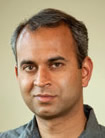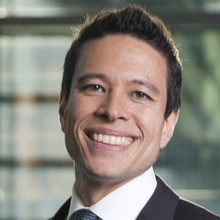

 Psy 8036 Deep Learning and Human Vision – 3 credits
Psy 8036 Deep Learning and Human Vision – 3 credits
Dan Kersten (kersten@umn.edu)
First meeting Tuesday, Jan 17th, 3:00 pm
Elliott Hall S204
For the third time in the past sixty years, there has been a surge of interest in the science and application of artificial neural networks. Spurred in part by the availability of large datasets for machine learning and advances in computer hardware, the field has seen unprecedented successes in pattern recognition, including algorithms that approach and on occasion surpass human performance. This seminar will review the history of neural network theory, and then focus on recent technical and theoretical advances. We will look at successes and failures in explaining aspects of human visual recognition and the functional architecture of the primate visual system. We will also compare discriminative vs. generative models of human visual perception and cognition. The class format will consist of short lectures to provide overviews of upcoming themes together with discussions of journal articles led by seminar participants.
 EPSY 5119: Mind, Brain, and Education – 3 credits
EPSY 5119: Mind, Brain, and Education – 3 credits
Dr. Sashank Varma (sashank@umn.edu)
Tuesdays, 4:40 – 7:20 pm
Folwell Hall 31
Prerequisite: none
With the advent of methods for non-invasively measuring human brain function, it has become possible to understand how educationally relevant skills and concepts are represented and processed in the brain, and how their neural instantiation changes through instruction and development, in both typical and atypical ways. In this course, we will review data from recent neuroimaging studies of topics relevant to education. It will be anchored by an introductory textbook on educational neuroscience that will provide a common knowledge base for students from different disciplinary backgrounds. Weekly readings will include empirical papers drawn from the neuroscience literature. These papers will illuminate topics of greatest relevance to education — mathematical thinking, language understanding, scientific reasoning, memory & learning, intelligence, motivation & reward, media understanding, and social, affective, and moral processing. For further information about the course, please contact Dr. Sashank Varma (sashank@umn.edu).
 LAW 6063: Law and Neuroscience - 3 credits
LAW 6063: Law and Neuroscience - 3 credits
Professor Francis X. Shen (fxshen@umn.edu)
Thursdays, 3:00 – 6:00 pm
Law School, Mondale Hall, Room 55
What are adolescents, psychopaths, and white-collar fraud artists thinking? Why does emotional trauma for victims of abuse last so long? Why is eye-witness memory so poor? Do violent video games lead to violent children? How can you get into the heads of the judge and jury? Lawyers and courts, including the U.S. Supreme Court, are already integrating neuroscience research into their arguments and opinions on questions such as these.
This Law and Neuroscience course will introduce the exciting new field of "neurolaw" by covering issues such as the neuroscience of criminal culpability, brain-based lie detection, cognitive enhancement, emotions, decision making, and much more. Along the way we'll discuss how the legal system can and should respond to new insights on topics such as adolescent brain development, addiction, psychopathy, Alzheimer's, the effects of combat on soldiers' brains, and concussions from sports injuries. No previous knowledge of the law is required for non-law students.
This course is open to graduate and undergraduate students from all schools/colleges. Graduate and undergraduate students should email Professor Shen at fxshen@umn.edu to enroll. Note on scheduling: This is a 3-credit course, meeting each week from 3-6 pm on Thursdays. On many days, this 3-hour block will be broken into one segment of discussion and one segment of guest speaker / field trip. Thus, you should block out 3-6 pm on your calendar but you should not expect to sit in a room for 3 hours straight on most days. On days where we use the full 3 hour classroom block, we will take a break at the halfway point.
<